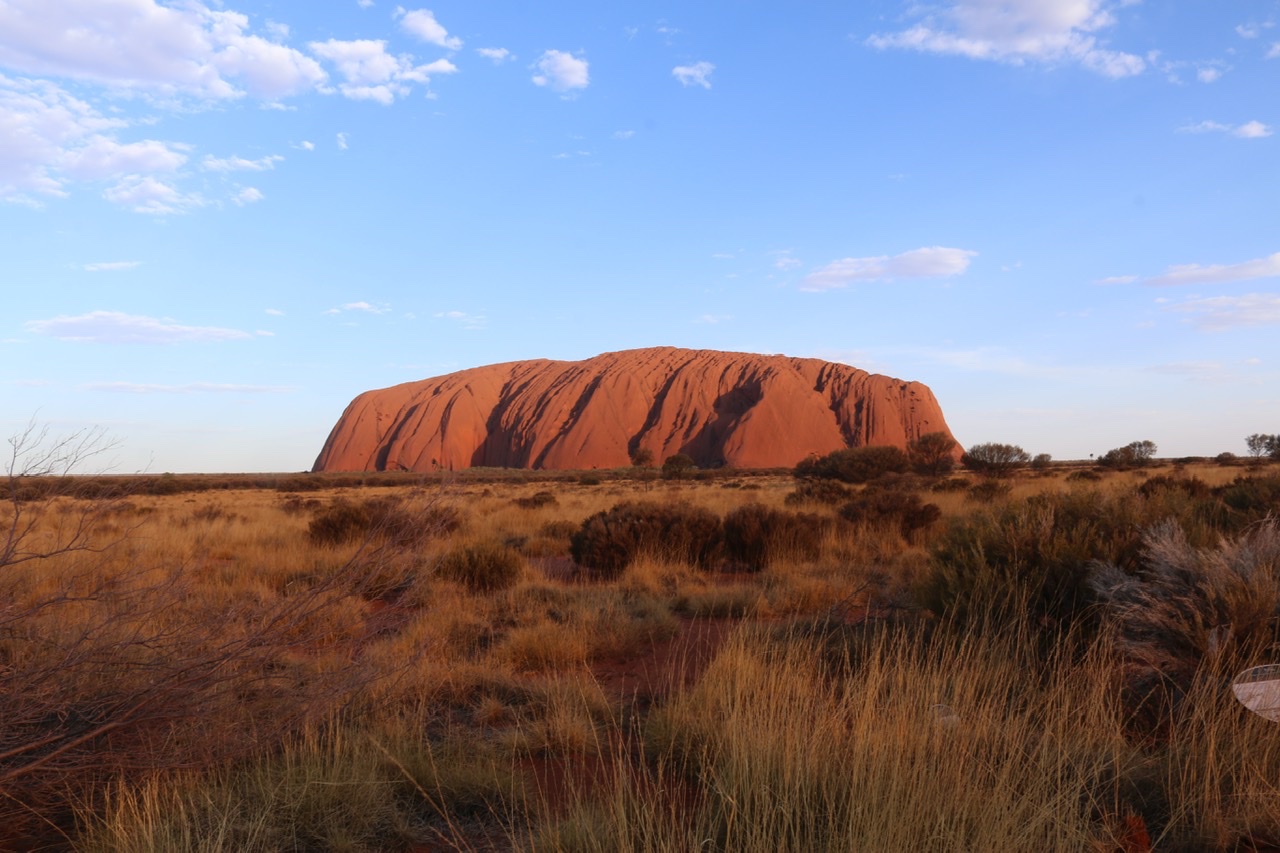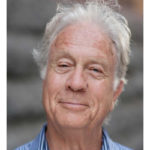The 27th of October 2017 was the most shameful day in Malcolm Turnbull’s tenure as Australia’s Prime Minister. It was the moment when he peremptorily rejected the Uluru Statement which had been addressed to the people of Australia five months earlier. He declared that the projected voice to parliament would not be ‘either desirable or capable of winning acceptance in a referendum.’ It was a stinging collective insult to the first nations’ leaders who had come from ‘all parts of the southern sky ’to draft the document.
But the abiding importance of the Statement was not in that moment diminished. It continues to overshadow many aspects of national life. Formal discussions about the voice to parliament continue in Canberra. What may not be so widely appreciated are two further aspects of the Statement—the need for a formal process of truth telling and a resolution of the competing ideas about sovereignty. These may have much wider long term significance than the voice to parliament which was foreshadowed by ATSIC created by the Hawke government in 1990 and abolished by John Howard in 2005.
Australia has a complex history when it comes to truth telling. The brutal reality of colonisation was openly discussed in the C19th. But a strange thing happened during the first half of the C20th. The Aborigines were progressively written out of Australian history. Much of the violence disappeared with them. There was no place for them in a national story of heroic exploration and pioneering. The focus was on an epic struggle with the land not a tragic one for the land. Up until the 1960’s leading historians still talked of Australia’s uniquely peaceful history.
But by the 1970’s the idyll was under widespread challenge. A new draft of scholars turned to the vast trove of colonial records which told a very different story. But it was not always welcomed by several generations of Australians who had basked in the benign warmth of much sunnier stories. When John Howard came to power in 1996 he began what can only be called a personal crusade against what he called the ‘black arm version’ of Australian history .For a few years at the turn of the century the history wars raged over the extent and nature of frontier conflict.
While Australians were focussed on their colonial heritage many other countries wrestled with troubled pasts. It was an historical moment when Truth Commissions were established in Central and South America, in Eastern Europe and South Africa. Australia adopted similar bodies to investigate specific aspects of national history. We had the Royal Commission into Aboriginal Deaths in Custody which reported in 1991 and the Human Rights Commission Report into the Stolen Children entitled Bringing Them Home which appeared in 1997.
In the last twenty years, there has been a vigorous renewal of historical investigation much of it conducted as a response to the history wars. The extent and variety of the new scholarship has put the harsh reality of colonial venture beyond reasonable doubt. But there has not been any official pursuit of the still unwelcome truth. The Australian War Memorial has rejected many and widely varied approaches to assume responsibility for the frontier wars. It represents both a political and moral dereliction of duty by the leadership of a lavishly funded national institution. And yet the administration is still indulged by both sides of national politics.
This is what lends significance to the decision of the Victorian government, announced last week, to establish an inquiry’ into the ongoing effects of the violent dispossession and genocide of Aboriginal people during the colonisation by the British empire and racist policies by Australian governments.’ The Yoo-rrook Justice Commission will be given the powers of a Royal Commission and will prepare the grounds for the negotiation of a treaty with the State’s recently created First People’s Assembly. Both Queensland and the Northern Territory are considering their own possible path towards the negotiation of treaties. Clearly, the States and Territories are moving far ahead of the Federal Government and it is not simply a matter of political will. It makes a great deal of sense to begin the process of truth telling at the state level. Almost the full story of violence and land theft unfolded during the colonial era. The Federal government only became directly involved as a consequence of the assumption of authority over the Northern Territory in 1911. It was only after the Referendum of 1967 that it assumed joint responsibility elsewhere for Aboriginal policy. The great bulk of resource material essential for the process of historical truth telling is held in the state archives and public libraries.
Such official ventures will certainly have a powerful influence on Australian historical interpretation. But the Uluru Statement’s observations about sovereignty may have an even greater impact on our jurisprudence. There has not yet been a sufficient consideration to the bold assertion that the indigenous peoples were the first sovereign nations of the Australian continent and possessed it under their own laws and customs. The statement carried the argument further declaring:
It has never been ceded or extinguished, and co-exists with the sovereignty of the Crown.
How could it be otherwise? That peoples possessed a land for sixty millennia and this sacred
link disappears from world history in merely the last two hundred years?…..we believe this
ancient sovereignty can shine through as a fuller expression of Australia’s nationhood.
This eloquent statement is a direct challenge to the foundation of Australian law which remains riveted to the assumption of the Imperial government, initially in documents drawn up in 1786, that Australia was a land without laws and customs and therefore a land without sovereignty the result being that the British acquired an original sovereignty in those three large annexations in 1788, 1824 and 1829. What clearly beckons is a legal confrontation even more consequential than the Mabo judgement of 1992. Whether welcome or not it is necessary and ultimately unavoidable.
Henry Reynolds is an eminent Australian historian.


Comments
10 responses to “Truth and Treaties: the ongoing legacy of the Uluru statement”
It seems right that the Uluru Statement “continues to overshadow many aspects of national life”.
And it is right that we support the collective agency of the indigenous peoples of this land.
I have, in a personal conversation with a senior member of the Western Australian government, promoted the idea of the State of WA holding a “truth commission”. This should address our colonial, and still fairly recent, use of raw power to annex and dominate our indigenous brothers and sisters in the State of WA. This should be along the lines of the newly announced Victorian model.
There were historical atrocities, including sexual abuse of indigenous women, which are abhorrent to modern sensibilities (and to many at the time). There has been structural exclusion from most sources of jobs and wealth.
The new McGowan government would have few excuses for not conducting a truth commission, if it really believes in our shared future as a nation. It holds a totally dominant position in both houses of Parliament and has a strong budgetary position. Labor policy purports to support the Uluru Statement: Here is your chance in WA for it to be other than just words..
In the interests of all Australians, this needs doing, and doing now!
McGowan has a reputation of being careful; cautious, even.
Yet even McGowan could hardly wish for more propitious political circumstances to do as Dan has done. And Dan has not had to deal with the fall-out from the governmental/corporate cultural massacre of Juukan Gorge nor with the (perceivedly ambiguous) cultural leadership offered by the head of an ancient ruling family.
If McGowan does not act, he begins his own political destruction.
I would say truth telling is going to become a very big issue. I am aware that this is taking place in virtually very place in the world where imperialism and colonialism took place, and it is going to get much more common than not. It’ s not about hanging your head in shame or feeling guilty, and not fearing that you will lose your land (big fear in Australia), but simply empathising and understanding what the indigenous people at the receiving end originally experienced. It can be an emotional and even joyous experience to do this, and it brings people together like nothing else.
Henry seems at ease with assuming an infallible air – his current offering is replete with observations of holy writ status. His acolytes will provide the applause missing form this dissenting opinion. The authors of the Uluru Statement may feel aggrieved with Malcom’s atypical engagement with blunt decision making – but, they bear some responsibility for him adopting the fear and flight response. Just what the statement means in practice remains as elusive as ever. And therein lies the rub. Rhetorical flourishes may inflame the passions of true believers but the same song sheet leaves those outside the fold unmoved. A few simple specific are called for and their utility and desirability put to the voting population. In the mean time Shakespeare had the last word on words full of sound and fury.
The Uluru Statement is an important component of our history. It should be heard by all of us as soon as possible.
Malcom Turnbull is history. The inexorable force of the Uluru Statement is the future.
The force of ‘what’s right and honourable’ is irresistible.
The Uluru Statement doesn’t need politicians co opting or rejecting it simply to further their own careers.
Perhaps our PM would grasp this opportunity and leave a monumental legacy. He would also whiteover his hand that carassed the ending of the Prime Ministership of Malcolm Turnbull.
All would be forgotten then, including his recent funding of private Corman on a RAAF jet, as “success fee” it would seem, for service rendered – in telling their esteemed friend Malcolm, again and again, to yield to the terrorists within their Party and hand over the crown.
Thank you Henry Reynolds. Everyone should read Truth-Telling a clear, concise and compelling statement of our fundamental national problem pointing to the way ahead.
The great tragedy of the rejection of the Uluru Statement is that it has left the Aboriginal voices with nowhere to speak, nowhere to show leadership, nowhere to show a path to a better future.
Flowing on from that, the men and women behind those voices, feeling undoubtedly frustrated while gamely attempting to soldier on, have become marginalized. They have lost standing and respect not just in the wider community, but more importantly within the Aboriginal community.
Frustration, and the lack of a clear way forward, has contributed to a breakdown of trust, of hope, and with that, respect of anything at all. This is especially evident among the young who act out in public what they learn at home, or in their home communities. And the result of that disrespect of everything by the young and the very young results in a situation in Alice Springs today where everyone, whether of Aboriginal, European, Asian or African heritage, are scared of the children.
And the children, utterly lacking in respect, destructive and untouchable, truly feral, aren’t scared of anything at all.